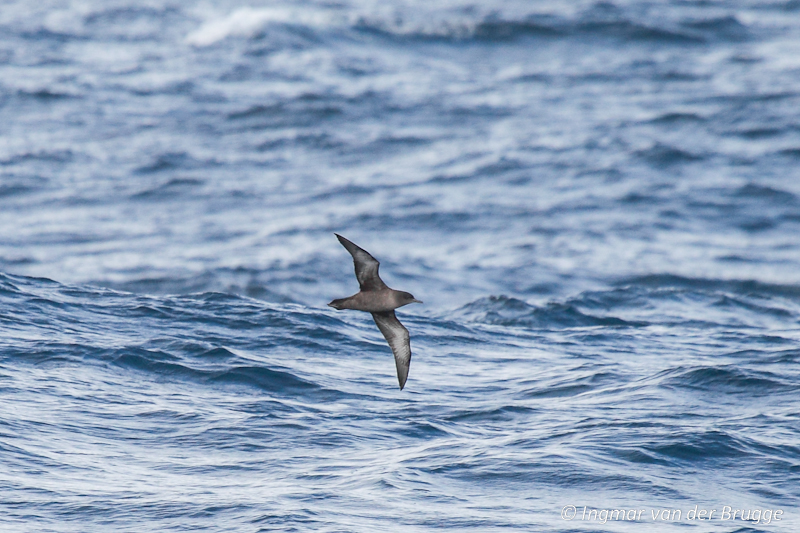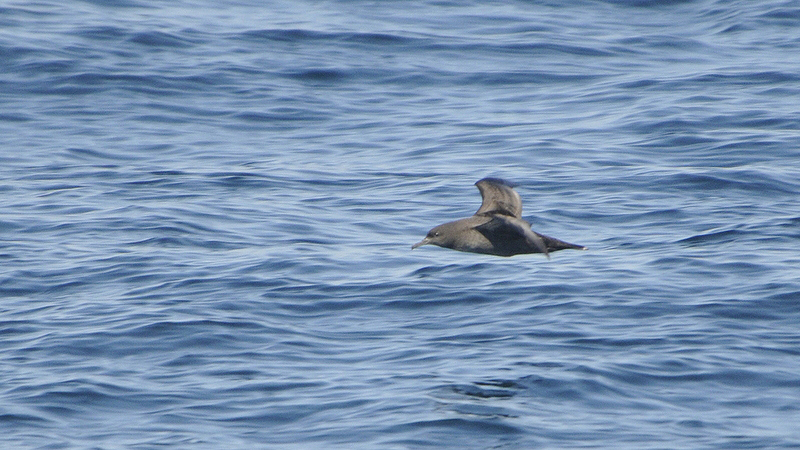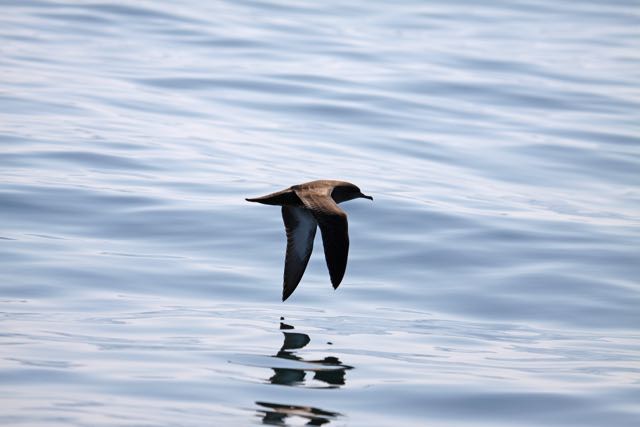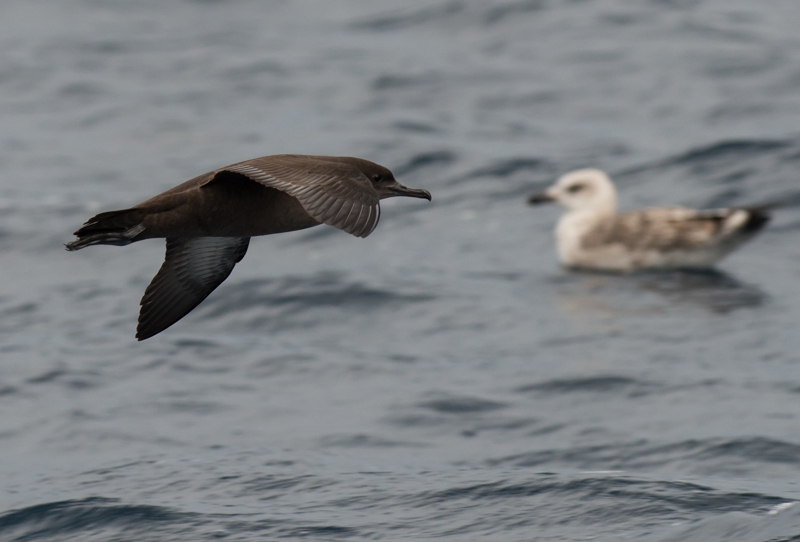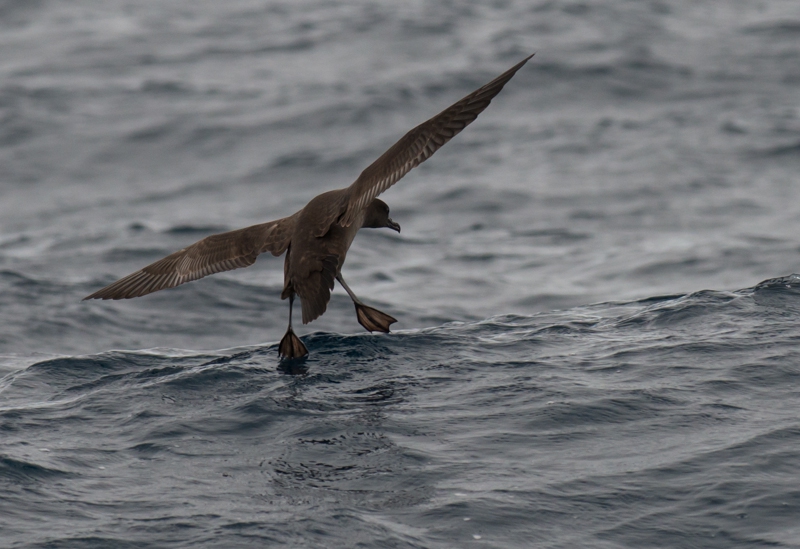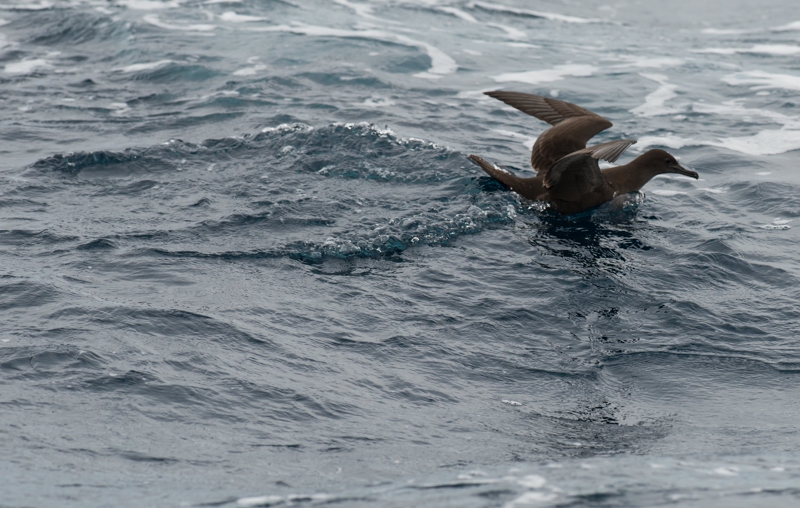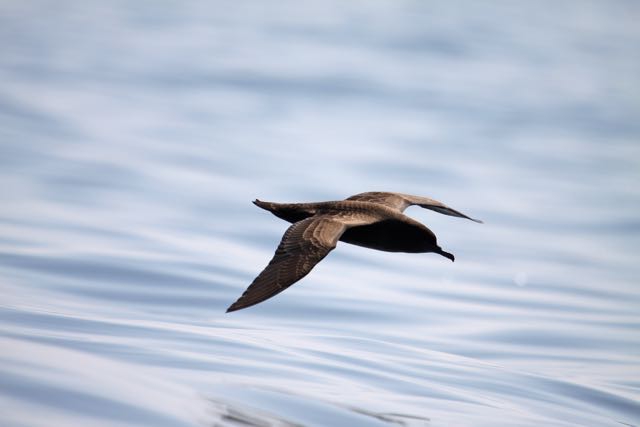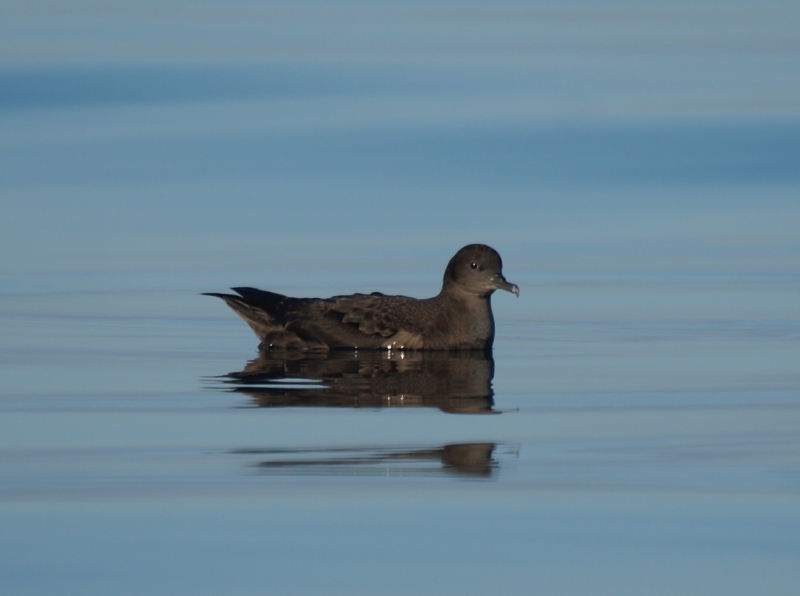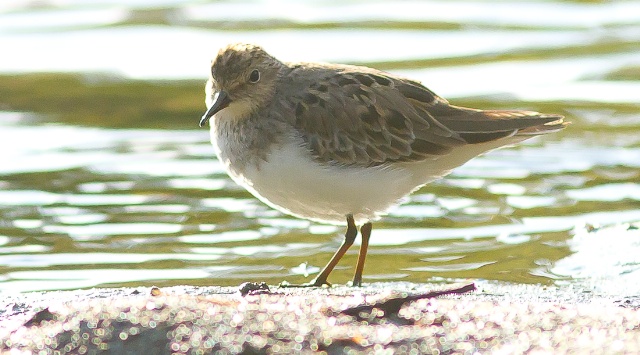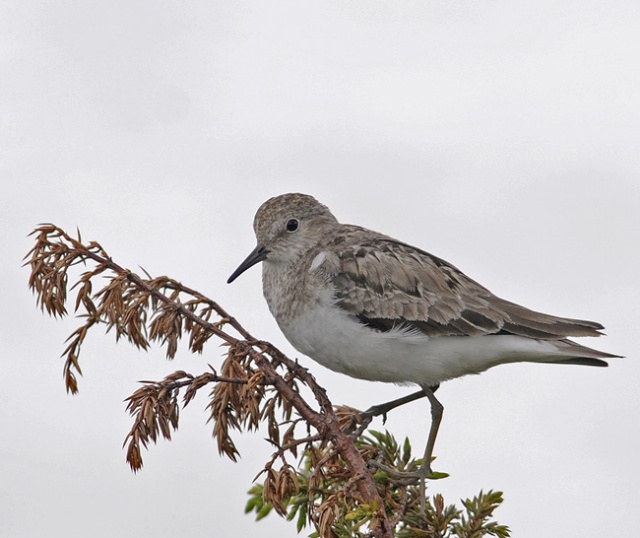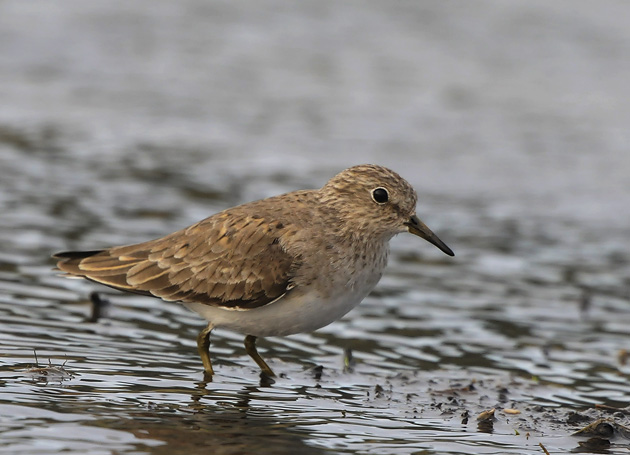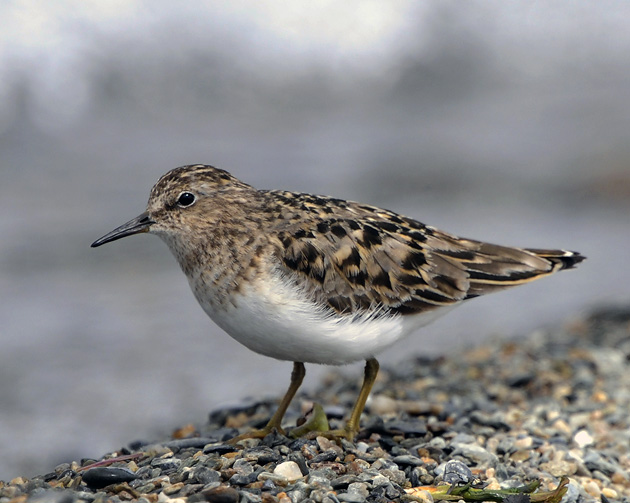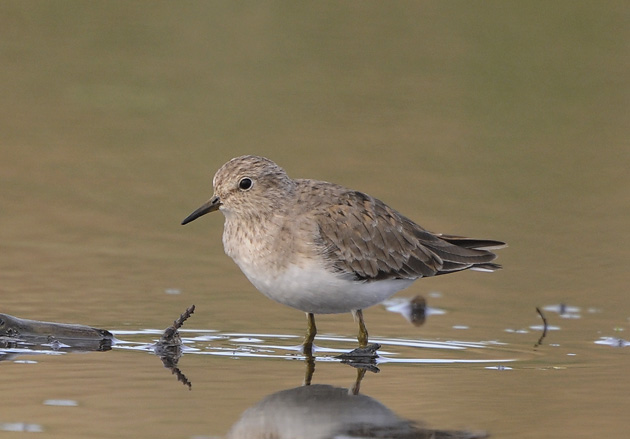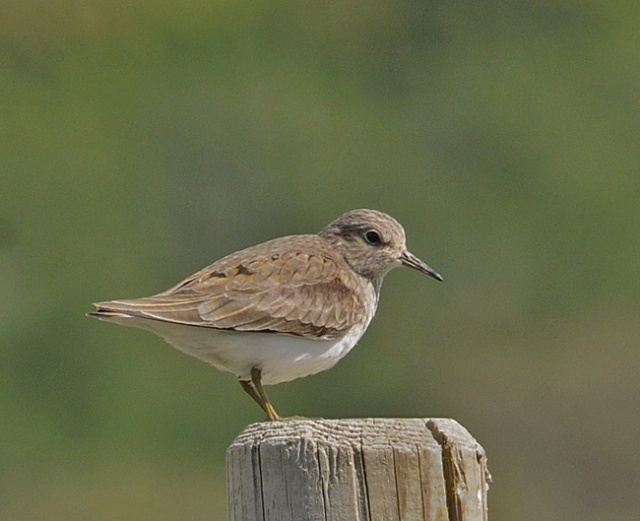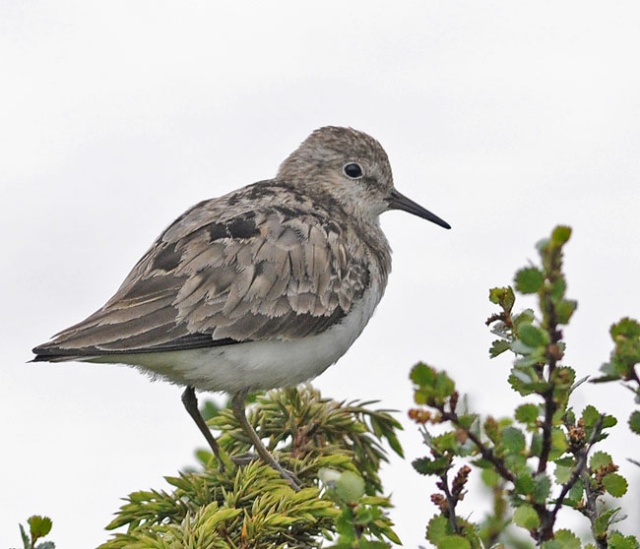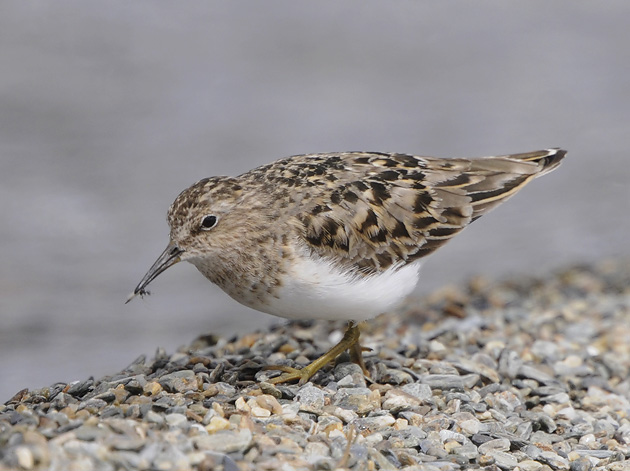Sooty Shearwater (Ardenna grisea)
Temminck's Stint (Calidris temminckii)
Dark-bellied, long-billed shearwater with small head and elongated body. Wings long, narrow and pointed, with pale patches/bands underneath framed in dark base colour of body. Flight fast and powerful. In strong winds hand held pointing slightly backwards. The pale underwing is clearly visible in good light, but the whole bird often seems completely dark. Only shearwater in the region with completely dark underparts, except from dark individuals of the much smaller, and short-winged, Balearic Shearwater. The latter also shows deeper belly and less deep chest. At long distance, and/or bad weather, Sooty Shearwater may be confused with Arctic Skua or even young Gannets. Differs from Gannets by size, shorter neck and no white rump patch. Told from Skuas by bursting series of stiff wing-beats with alternating glides.
Sound:Mostly heard at breeding ground. A peculiar, rhythmic, coarse moaning, with a disyllabic attack, followed by a deeper, cooing "in-breath".
Song:
Distribution:
Wikipedia: map (se also Xeno-canto below)
Ecology:Birdlife ecology
Links:
Observation.org Latest observations
Image search Flickr NB! May give other species
CCCC-photo:pablo_caceres_c, Licence,Link.
CC-photo:Jon. D. Anderson, Licence,Link.
Sounds:Creative Commons,www.xeno-canto.org,sjonnoh,http://creativecommons.org/licenses/by-nc-sa/4.0/
A small wader with yellowish legs and short, almost straight, dark bill with pale base. Noticeably smaller than Dunlin, and with shorter and straighter bill. Similar in size to Little Stint, but legs light yellowish, tail longer with white edges and markings on back quite plain. Clear divide between markings of breast and white underparts. Juveniles with prominent scale-pattern on back. Upperparts of adults in winter plumage more evenly grey, lacking the star shaped spots of summer. Prefers fresh or brackish waters, even on migration.
Sound:Call a hard, thin, ringing "trrrrrr". Song a cyclic series of variations on the call; "trrrrrrrr" rising and falling in pitch. Often sustained for several minutes at a time.
Song:
Distribution:
Wikipedia: map (se also Xeno-canto below)
Ecology:Birdlife ecology
Links:
Observation.org Latest observations
Image search Flickr NB! May give other species
CC
 English
English Albanian
Albanian
 Armenian
Armenian
 Bulgarian
Bulgarian
 Catalan
Catalan
 Croatian
Croatian
 Czech
Czech
 Danish
Danish
 Dutch
Dutch
 Finnish
Finnish
 French
French
 Georgian
Georgian
 German
German
 Greek
Greek
 Hungarian
Hungarian
 Italian
Italian
 Latvian
Latvian
 Lithuanian
Lithuanian
 Macedonian
Macedonian
 Norwegian
Norwegian
 Polish
Polish
 Portuguese
Portuguese
 Romanian
Romanian
 Russian
Russian
 Sami : Lule sami
Sami : Lule sami
 Sami : North sami
Sami : North sami
 Sami : South sami
Sami : South sami
 Scientific names
Scientific names
 Serbian
Serbian
 Spanish
Spanish
 Swedish
Swedish
 Ukrainian
Ukrainian


